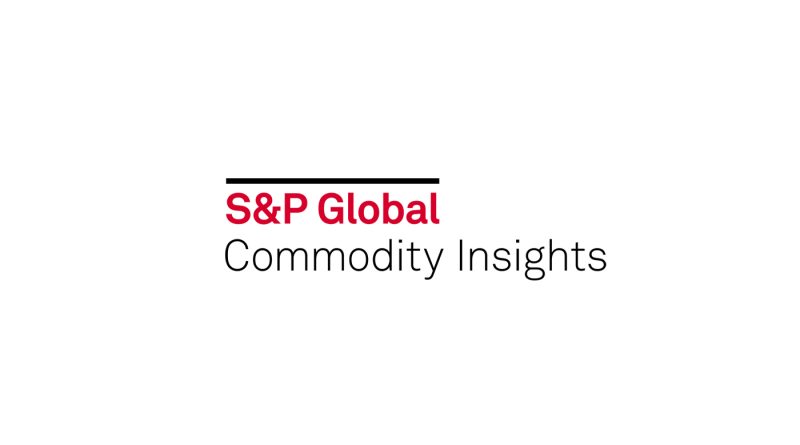S&P Global Commodity Insights targets Nigeria’s mineral development push, opens country office
S&P Global Commodity Insights is setting its heart on Nigeria’s blooming resource development drive to spur its operations in the country and start an office next year.
The West African nation’s resource development drive has led the government to shift his gaze towards energy and mining among the priority areas needed to speed up economic growth.
S&P Global, the New York City-based parent, currently runs serviced offices in Cape Town and Johannesburg as part of its African operation.
The commodity market intelligence powerhouse has picked Abuja, Nigeria’s administrative capital, as its base, where it has secured a place at the World Trade Center complex as a strategic point to connect with clients, policymakers and the local industry.
“Not only are we excited to become a part of this unique location in the heart of Nigeria’s capital at this pivotal period in the evolution of the nation’s energy, metals, and mining sectors, but we welcome the opportunity it provides, by proximity, to working more closely with industry leaders, policymakers and market participants,” Dave Ernsberger, a co-president of the company, said in a statement on Thursday.
AFEX Commodities Exchange, also based in the city and recognised by the Financial Times two years ago as Africa’s fastest-growing company, similarly offers commodity insights and real-time pricing data for grains like sorghum, soybean, paddy rice and maize. It does so through its AFEX Commodity Index.
S&P Global Commodity Insights is taking its services in price reporting, analytics, market surveillance and research to the doorstep of West Africa’s largest economy to keep its radar tuned to immediate developments and trends in its energy transition and commodity space.
It ranks alongside Argus Media and ICIS among the world’s most prominent price reporting firms, and the data it supplies are popular benchmarks for pricing in both physical commodity and derivative markets.
Nigeria’s newfound oil push
The race to grow the Nigerian economy to the $1 trillion mark by 2030 is feeding a push to turn to its largely unharnessed natural resources to generate revenue for infrastructural expansion and critical projects.
Oil & gas, projected to take the lead, will have reached 3 million barrels per day in output terms by 2030, the government projected.
Strong outcomes from combatting commonplace crude theft, pipeline vandalism, insecurity and sabotage in oil-producing regions are giving international investors an assurance of safety to put their capital in an industry, where oil output slumped to a 32-year low in 2022.
This month, Shell announced a $2 billion final investment decision on a joint venture gas project with local company Sunlink, mirroring a surge in IOC activities now seen in deep-water areas of the Niger Delta, where ExxonMobil and TotalEnergies are taking on new projects.
These and other upstream operations are helping restore production to fairly high levels. Output currently stands at 1.61 million bpd (crude oil and condensates), compared to below 1 million in May 2023, when Bola Tinubu took over presidency.
Nigeria is rising to become a regional refining hub, with Dangote Petroleum Refinery, the continent’s biggest refiner, now expanding its daily capacity to 650,000 barrels from the original 600,000, and a couple of other conventional refinery constructions, including Akwa Ibom State-based 200,000 bpd BUA Refinery, are in the works.
Aliko Dangote, Africa’s richest man who owns the plant, bared his plan to scale up the capacity to 1.4 million bpd in a recent interview with S&P Global. At least five modular refineries are also processing crude.
Such activities suit the ambitions of S&P Global Commodity Insights, which, in April, introduced a number of regional price assessments to monitor the value of waterborne refined oil products traded in the Gulf of Guinea.
The company said the move aims at supporting West Africa’s energy markets to attain higher transparency and efficiency as the supply of refined petroleum products grows and regional demand surges.
Platts, part of S&P Global Commodity Insights, first began a West African crude oil price assessment (Platts Nigeria Forcados) 41 years ago. Forcados Yokri oilfield, situated southwest of Warri in Delta State, produces the medium sweet crude oil grade.
Mining revolution
S&P Global Commodity Insights said tracking the country’s metals and mining sector will also take centre stage of its operation.
In a way, the country is shifting its fixation away from oil as the biggest contributor of the government’s revenue and the dominant source of Nigeria’s foreign exchange earnings.
That has sparked an urgency to explore other promising economic activities, including tapping its mineral wealth, now in the neighbourhood of $750 billion, to quicken growth.
Mining’s contribution to the GDP was as low as 0.2 per cent between 2018 and 2022, according to PwC. That surged to 4.6 per cent in the second quarter of this year, Minister of Solid Minerals Development Dele Alake told a media parley ahead of the Nigerian Mining Week this month.
President Tinubu has announced an investment package of N1 trillion from this year’s budget to boost industry operations in areas including geological surveying, geoscientific exploration and mining infrastructure.

